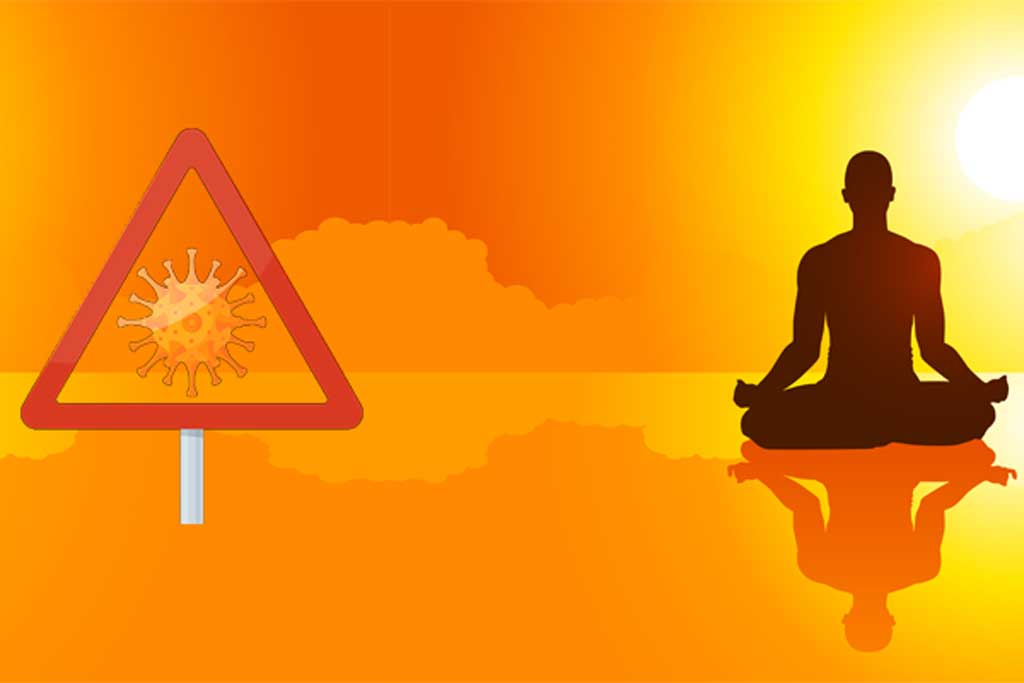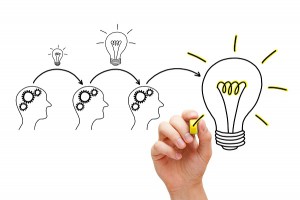There’s no avoiding the impact of the COVID19 pandemic. Whether you are worked off your feet, furloughed or otherwise now out of work, isolated on your own or with family or other cohabitors. Those who are key workers or otherwise still required to go out to work may find that they need to isolate themselves from vulnerable family members.
Some of us are lonely, some are craving time to be alone, some are bored, and others are wishing they had a moment to spare, some of us have lost someone close to us… and still others are doing just fine. How it impacts us varies hugely.
Mindfulness isn’t about escaping
How might mindfulness help us work with our current situation, whatever it is?
Mindfulness isn’t just one thing – it’s more than being in the present, it’s more than meditation, it’s certainly more than relaxation. What it isn’t though is a way to escape or avoid our emotional experience. Most of us would want more pleasant feelings and no unpleasant ones – and why wouldn’t we!? But as the psychologist Rick Hansen has suggested, ‘the brain is like Velcro for negative experiences, but Teflon for positive ones.’ Pleasant things just slide off, whereas unpleasant ones stick!
Without trying to replicate all the lessons of an eight-week course, here are three ways I think mindfulness can help:
- Awareness of our moment to moment experience, without needing to be caught up in it
- Mindfulness helps us come back to the present moment
- Mindfulness can help take more notice of pleasant experiences while letting go of unpleasant ones
Mindfulness helps us see what our mind is doing, without needing to be caught up in it
The fancy word meta-cognition describes our ability to observe what the mind is doing. There’s a big difference between being lost in our experience of thoughts and emotions – which is how we are most of the time – and being aware of our thoughts and emotions.
If we can observe what’s going on in our experience without being sucked in by it, we have the opportunity to do something about it, the ability to make choices. Imagine a parent watching a child as they are immersed in play – the parent is likely to see a problem or danger long before the child. We can play both roles with our mind and observing is a key part of awareness. But our moment to moment experience isn’t just about the thinking mind. Try this:
- What does frustration feel like? Notice the word ‘feel’ – what happens in your body… your abdomen, your breathing, your shoulders, as well as your pace of thinking, your desire for action, …? Spend a minute really trying to break down your experience into specific observations.
- And now, what does excitement feel like? Go through the same process, take a minute to explore.
Why would I suggest you do this? It’s one way of observing our experience while not denying it. If we can observe it and describe it, then we are not lost in it – it becomes ‘my’ experience, but not ‘me’. The more we practice mindful awareness (and mindful meditation is the most common way to practice), the more skilled we become.
In addition to the awareness that comes with noticing, if we can treat ourselves with kindness our mind seems much more able to let go. As we observe, rather than beating ourselves up – ‘I shouldn’t be feeling this’ or ‘why can’t I get rid of this’ or whatever your internal dialogue is, try treating yourself as we would our closest friend. When we stop ‘fighting’ our thoughts and feelings, they often move on more quickly.
Importantly, it’s not about escaping what’s actually going on. I often suggest that mindfulness is a way of working with reality. If we can observe it and treat ourselves well, we’re more likely to make wise choices during it.
Mindfulness helps us come back to the present moment
What is anxiety? I’m going with – our desire for and feeling of responsibility for a specific future that either we’re not confident we can create or will require constant vigilance to achieve.
For example, I don’t want anyone in my family to catch the virus. (Well, I’d rather nobody catch-it, but clearly, that battle is already lost.) This is a perfectly reasonable desire! And there are some ways I can help my family that will increase the chances of it happening (I’ll make sure everyone knows about hand hygiene, and that they know they should stay inside and on the rare occasion they go out, ensure they stay at least two meters away from anyone outside, etc). And, in doing this, I’m also helping protect other people, reduce the burden on the NHS and ultimately save lives. It’s a no brainer.
But what if even after taking those actions I still deeply feel the unpleasantness of my lack of control, focused on all things I can’t do. Someone who cares about us might tell us – you’re doing all you can, now let go. This is sound logical, but our emotional system doesn’t do logic. So, we may tell ourselves the right thing, and still, we feel the anxiety.
A practice that helps draw us back from a future that we can’t control into the present moment would be really helpful. And in the present moment, as necessary, using our awareness to see what is going on in our mind as we get drawn away from the present moment. Try this:
- What do you feet (or any body part) feel like, right now? This invitation isn’t to ‘think about’ your feet, it’s to notice how they feel – temperature, tingling, the pressure where your feet are supporting you, and so on. Simply notice it, become aware of the sensations.
- When you mind wanders off into thoughts, or an inner conversation, or is distracted by noise or something else, at some point you’ll notice that we’re been away from the present moment. 1. Be pleased that you are back, 2. acknowledge where you have been (‘oh, I was back to thinking about x,y or z again’), and 3. come back to your feet.
This is a mindful meditation and incorporates the ‘awareness of my experience’ from the previous point. And notice, I don’t imagine the feeling of my feet in the future or recall them from the past. If I can notice my feet, or my breath, or the sensations of sitting, or running, or pedalling, or stretching, the warmth of a pet, the wind on my face, or the sounds around me, all of which are happening now, in the present moment… then I too am in the present moment.
Mindfulness can help take more notice of pleasant experiences, while letting go of unpleasant ones
What did you notice that was pleasant today? It doesn’t have to be big. I enjoyed my one cup of coffee about 11.30 this morning – just the way I like it, fresh coffee with warmed oat milk. To me, delicious, a real treat. If I recall it now there was the aroma, the cup was pleasantly hot, on tasting it there was a creaminess along with that distinct coffee edge.
The recollection makes me smile and my taste buds tingle! I’ve learned to give myself the time needed to sit and enjoy it, and on this day I’d just finished doing some exercise beforehand which enhanced my ability to relax.
This was an everyday experience of drinking a cup of coffee, not winning the lottery. By default our brains remain on alert for any kind of danger – whether real or not (oh no, I forgot to put fuel in the car, agghh)… and so easily let go of pleasant things. So we need practice! Try this:
- For the next week – spot at least one pleasant thing in your day. Write it down and do your best to describe the experience in detail noting thoughts, emotions, and any physical changes in your body that come with it.
Over time this can improve our ability to notice pleasant experiences and to make more of them (help them stick a little better). When you combine this with the previous point we can learn to let go of unpleasant experiences, particularly ones where I have taken the action I can usefully take, and help pleasant experiences be more impactful.
To follow up?
Attending an eight week mindfulness course is perhaps the best way to develop the skill of mindfulness (look for a qualified and experience teachers via BAMBA teacher search, of which I am one!). During the pandemic, these will be online, but try finding a ‘live online’ course to get real time feedback and engagement. But a pre-recorded 8-week course is a good backup if you can’t find or attend one live.
If you like book, try ‘Mindfulness: Finding Peace in a Frantic World by Mark Williams and Danny Penman’ or ‘Full Catastrophe Living’ by Jon Kabatt-Zinn.
And apps like Headspace or Insight Timer may not always be the best way to learn mindfulness, but they’re great at keeping you practicing which over time makes a big difference.




